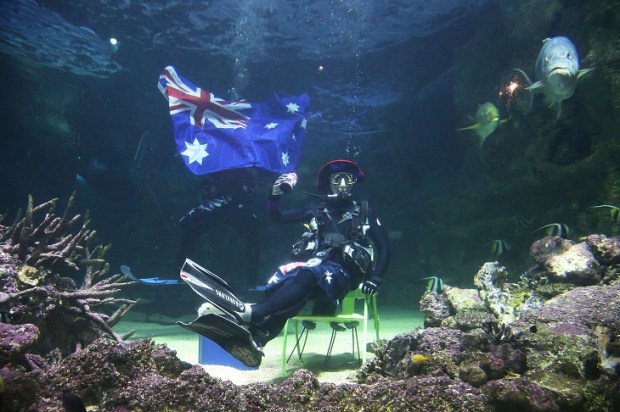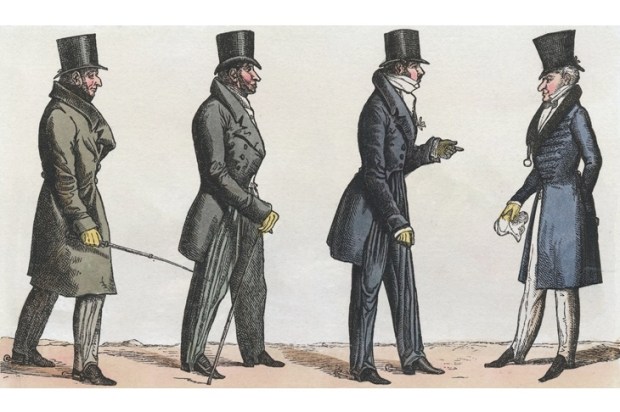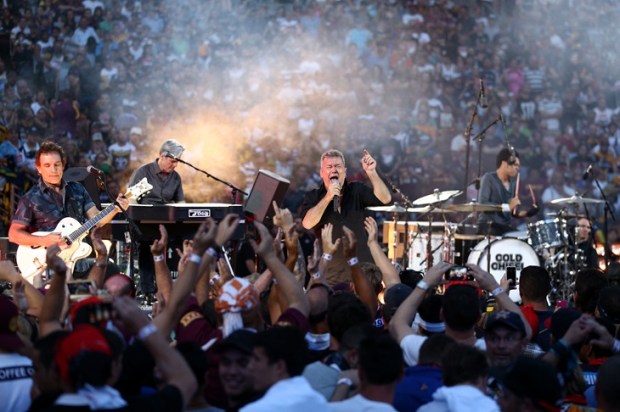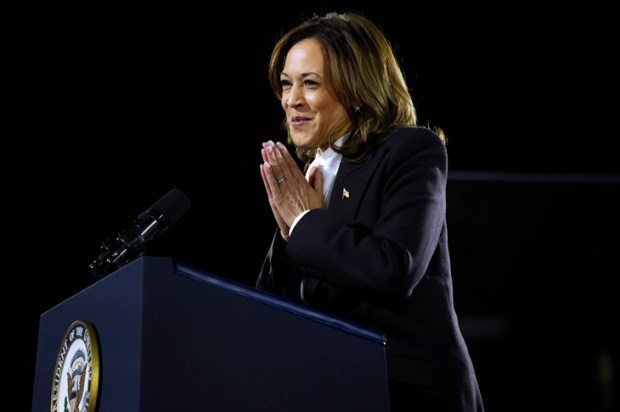My father, I feel, was defamed at the Conference of the Parties to the United Nations Framework Convention on Climate Change (COP9) in Milan in 2004. It was a subtle, but cutting slur from then Chairman of the (then) IPCC Rajendra Pachauri that cast Ian Castles into the pit of climate deniers and corrupt lackeys of the fossil fuel industry. He managed to achieve this in 10 easy steps, which you can follow yourself should you wish to become a climate pariah.
Step One: Complete a Commerce degree at a prestigious tertiary institution, in my Dad’s case, Melbourne University, in 1954. You should be able to do this in three years, assuming you have the requisite marks for admission.
Step Two: Get a job in a library. Dad considered himself first and foremost a librarian. That is where he started his career, where he spent innumerable hours during his career, and where his archives now reside, in the National Library. Their website should list current positions vacant to which you can apply.
Step Three: Transfer to the Treasury Department and work as a research and policy officer for a decade or so. Things might be easier now, but in the 1960s and 1970s, this meant working long hours for less pay than today. A sense of dutiful civic service was expected.
Step Four: Be head-hunted by the Prime Minister, in Dad’s case Gough Whitlam, and transfer to the inner sanctum of the Department of Prime Minister and Cabinet. (Gough once described Dad as ‘one of my best evah appointments’.)
Step Five: Should the Prime Minister you are working for be dismissed, have your services promptly secured by the new leader, in this case Malcolm Fraser. Be appointed Head of the Department of Finance.
Step Six: Continue to be a key economic adviser to successive Prime Ministers for decades, in Dad’s case Fraser, Hawke, Keating, and Howard, and steer some of the most key economic reforms in Australian history. Dad believed a public servant’s job was to best advise the minister of the day, and he was respected on both sides of politics.
Step Seven: Become official Australian Statistician for ten years. You’ve got to have a pretty good head for numbers for this. You’ll be responsible for producing the CPI figures, GDP figures, national accounts, employment statistics, the national census, and so on.
Step Eight: Become President of the International Association of Official Statistics. Work with like-minded statisticians from around the globe to develop and improve the validity, reliability, and consistency of statistical collection for the purposes of sound policy decisions and human wellbeing.
Step Nine: Become President of the Academy of Social Science in Australia. Continue to be involved in the international academic community, focusing particularly on the use and misuse of statistics in the measurement of human progress and wellbeing.
Step Ten: Point out some material errors in the statistical methodology used by the IPCC in their climate modelling, economics playing an integral part in the projections of global economic growth, and thus estimates of carbon dioxide emissions.
Following these simple steps, Dad, along with colleague David Henderson – himself having taken similar steps through Oxford University to becoming Director of the Economics Department of the World Bank, and later Head of the Economics and Statistics Department of the Organisation for Economic Co-operation and Development (OECD) – were described by Pachauri as two ‘so-called’ independent commentators. As hackneyed and off-hand as it was, the retaliatory insult implied that Dad was somehow on the take from vested interests in the fossil fuel industry – a climate denier trying to thwart the noble efforts of the IPCC. It was based on nothing.
The calibre of these ‘so-called’ independent commentators was at least enough for the slur to attract some media attention and to cause a bit of a stir at the junket. Articles were written in various publications, and the Castles-Henderson critique gained considerable attention, including in the House of Lords in the UK.
But to the world at large, my Dad was now simply a ‘climate denier’, not that he’d ever said much about the climate at all. He’d been excommunicated from a new religion he’d never had any intention of joining. He admirably continued to make his case in various letters and publications. Added to the statistical critique, however, was a question mark over the manner in which the IPCC went about producing its reports and its openness to collaborative expertise from around the globe, especially given the seriousness of the topic – the Earth’s climate and the trillions of dollars the world was potentially willing to throw at it. If the IPCC’s projections involved economic data, then it was important to avail itself of the best economic advice, but as a UN body, it seemed to even ignore some of the UN’s own guidelines for economic measurement. That was Dad’s concern. An organisation without an agenda would presumably have no issue with this, but as Pachauri’s hostile attack demonstrated, the IPCC was more concerned with advocacy than assessment.
When Dad died in 2010, my brother and I joked, as we cleaned out the family home he had lived in for 50 years, that surely we’d find his stash of Exxon Oil money… Crawling under the house, or opening a top cupboard or the hatch to the attic, we waited for the big pile of cash to splash down on our heads, showering us with wealth from Dad’s evil doings. Unfortunately, the only green folding stuff we found was hundreds, possibly thousands, of green library stack slips stuffed into every corner of the house. Although, Dad’s brain retained knowledge like a library itself, he nonetheless seemed to be a hoarder of paper, presumably to confirm the accuracy of all figures or words he quoted. We filled two rubbish skips of his papers before we even started turfing the household junk and garage-sale detritus.
A few years later, a collection of Dad’s major papers was published in a book titled Measuring and Promoting Wellbeing: How Important is Economic Growth? It was co-launched by then Finance Minister Mathias Cormann and Shadow Minister Andrew Leigh, illustrating the bipartisan regard in which Dad was held. But even then, his status as climate pariah held strong. After lavishing Dad with praise – he described having a ‘rock-groupie reaction’ to meeting him – Leigh remarked that it would be ‘remiss of me if I didn’t take issue with the biggest area where I disagree with Ian Castles: climate change’. He then devalued the worth of his praise, and made Dad roll in his grave, by failing to state what he disagreed with. To the extent that I have read his work, I can’t find Dad ever stating what he thought about ‘climate change’, whether or not he ‘believed’ in it, however one might define it. I’m not sure he would have considered himself qualified, other than to the extent that all numbers can be statistically analysed. But that was not his area. Dad simply believed in basing assessments and decisions on the best data.
Leigh questioned whether Ian was a sceptic or an agnostic, although he didn’t explicitly clarify the difference. The words are almost synonymous in the thesaurus, implying an attitude of questioning rather than blind faith. Perhaps the word sceptic was then just a politer term for denier. But Dad rarely, if ever, in my memory, lapsed into taking a side in simple diametrically presented debates around complicated issues. Yes or no? Believer or non-believer? Even one of Dad’s closest colleagues, former University of Canberra Vice-Chancellor and President Don Aitkin, was unsure of his stance at the end. But his treatment by Pachauri certainly made him lose trust in the workings of the IPCC.
When Dad similarly critiqued the UN Human Progress Report years earlier, no one accused him of being a ‘poverty denier’. He was simply stating that methodological flaws meant the numbers were wrong, and that’s not a good starting place, especially if one is later going to assess the efficacy of policy choices. Surely, only an organisation with a predetermined agenda would disagree with such common sense?
Dad understood full well that in such complicated matters as economics, social policy and climate, at some point decisions do have to be made by the powers that be on the weight of evidence, with usually less than perfect certainty of outcome. But that, he saw, was their job. As a public servant, he saw his as presenting policy options and advice based on the soundest possible empirical and statistical data. To put it another way, whether he ‘believed’ or not, was essentially irrelevant. It would not have altered how he went about his work. His concern was the quality of the numbers that went in, to minimise the garbage that came out.
Rajendra Pachauri was a rail engineer by trade, a job whose primary aim is to keep trains moving on a pre-set track. Not a simple job, no doubt, but perhaps ill-suited for the role of independent assessment. It seems Pachauri couldn’t shake off his engineering mindset, in this case the social kind, a still more complicated task, as people have a greater tendency to veer off track.
I saw Pachauri talk in Melbourne in 2007. At one point, he made a comment along the lines of poverty causing terrorism. I immediately wondered if he went about assessing climate change with the same feel-good casuistry. For any such link is extremely tenuous at best. A casual perusal of the history of terror, from Baader-Meinhof to Al-Qaeda, demonstrates that it is a hobby of middle-class ideologues, just like climate activism today. The poorer people of the world are more focused on feeding their children, and don’t have the time, resources, and wherewithal to organise mass bombings. Every country has poverty, but not every country has terrorism.
One of the things that Americans couldn’t get their heads around after 9/11 was that the terrorists seemed to have everything a wealthy American could want, but that didn’t stop them killing themselves in the name of a cause. Osama Bin Laden’s wealth was estimated at $300 million. If Pachauri considered that poor, his economic credentials were certainly in need of sound advice. But, of course, the audience dutifully applauded because, hey, climate change – bad, poverty – bad, terrorism – bad. Presumably, we can somehow resolve all three by simply setting an ideal temperature from the Arctic to the Equator, so that all people become wealthy and suddenly no longer compelled to blow things up.
Of course, I’m the first to admit that as Ian’s son, I’m not an ‘independent commentator’ here. Being prone to familial bias, I’ve tried to refrain from expressing value judgments about Dad’s honesty, integrity, humility, and disappointing reluctance to take payments from vested interests. While Pachauri was quick to question Dad’s independence, it was Pachauri who, while Chair of the IPCC, was also on the board of the Oil and Natural Gas Corporation, the largest government-owned oil and gas producer in India. He was also Executive Vice Chairman of the Energy and Resources Institute (TERI), a private institute that received funding from the central government.
As for Pachauri, he resigned from the IPCC in 2015 amid multiple allegations of sexual harassment (which he denied).

























